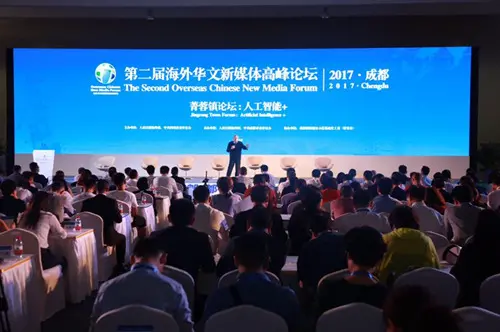By APD Writer Wang Peng
Recep Tayyip Erdogan, current President of Turkey, has accomplished his two-day Kissingerian ‘shuttle diplomacy’ among three rival Gulf countries, Saudi Arabia, Kuwait and Qatar on Sunday and Monday.
This visit is widely regarded as part of efforts to resolve the ongoing diplomatic crisis in the region. Almost two months before, Saudi Arabia, the United Arab Emirates (UAE), Egypt, Bahrain, Yemen and Libya cut off diplomatic ties with Qatar, citing several reasons.
Will his mediation be crowned with success? How to understand Erdogan’s motive and Turkish role and conducts in the grand chessboard of Middle East?
Turkey as the Feud of Persia/Iran is pleased to see the punishment on Qatar, a traitor of the Anti-Iran Camp (Sunni)
To save Qatar, or not, is a question in front of Erdogan.
To understand the deep background and motive of Ankara’s behavior in the crisis of Qatar’s diplomatic breaking off, we had better to know the hostility between Ankara and Teheran at present and in history; the latter derived from the cruel struggle between Ottoman Empire and Safavid Dynasty in both regional geopolitics and religious orthodoxy hundreds of years ago.
Over recent decades, it seemed that Ankara and Teheran reached an accommodation, partially resulting from their common interest against Kurdish separatists and energy cooperation.
Especially, after the abortive military coup attempt on July 15, 2016, along with the increasing distrust against Washington, Ankara may find more common language with Teheran. However, all those moderations do not change their ingrained geopolitical and religious competition fundamentally.
Thus, in the eyes of Ankara, it is perhaps strategically favorable in the long run to maintain a sustainable diplomatic pressure on Teheran, in order to prevent the catastrophic renaissance of a new Persian empire, or a rising heretic center within the Muslim world, as well as to keep the unite of the fragile Anti-Iran Camp among Sunni (Gulf) countries. In this vein, the Turkish may be pleased to see the punishment on Qatar, a traitor of the anti-Iran Camp (Sunni).
Qatar as the major ally of Turkey in Gulf region plays an irreplaceable role for Erdogan’s grand strategy of “Ottoman Rejuvenation”
However, Erdogan cannot abandon Qatar, which, as the major ally of Turkey in the Gulf region, plays an irreplaceable role for his effort in enlarging Turkish discursive power in Gulf/Arab/Islamic world, as well as the “Ottoman Dream of Rejuvenation” that he has always been fixated on.
The Turkey-Qatar cooperation is implemented in various fields, including political, economic, financial, and military. Now the Turkish army is busy constructing their only overseas base in Qatar, which serves a flagship project of Erdogan’s ambition in the Gulf region.
In addition, as an important regional power with trans-continental ambition but weak national strength, Turkey is in badly need of financial support from the boiling-rich monarchs of the Gulf, especially when Erdogan’s religious attitude and sincerity for cooperation were met with incredulity in Europe.
Under these circumstances, it is safe to say that Erdogan has ample reasons to intervene Qatar’s diplomatic crisis, but his strong desire cannot guarantee the positive results. First, the Turkish influence in Gulf affairs is relatively limited.
Second, the real “big boss” in this region, America backed up Riyadh’s punishment to some extent, since Washington does not bent over backwards to show mercy to Iranians, as well as Teheran’s sympathizers.
Conclusion: what matters for Turkey is action rather than outcomes
As we have clearly discussed above, on one hand, Turkey may not be really angry about Riyadh and their Sunni ally’s punishment on Qatar because of the historical lessons, contemporary geopolitical and religious competitions between Ankara and Teheran.
However, on the other hand, Turkey cannot abandon Qatar, its unique ally in the Gulf. Their cooperation with Qatar in politics, economy and military forced Erdogan to break the silence and take a stand to ease the deteriorating regional circumstances.
Nevertheless, considering two negative realities, the limited Turkish impact in the Gulf region, and the strong will of the “big boss” (America) and “manager” (Saudi Arabia), it is hard to say that Erdogan’s shuttle diplomacy can make similar efforts as its most well-known practitioner, Henry Kissinger, who changed the course of the chessboard half a century ago at the same place.
Finally, can we say Erdogan is making useless work? Absolutely not. The Turkish President and the author both know that ‘mediating the Crisis and saving Qatar’ is a ‘Mission Impossible’.
But, so what? Does Erdogan really need to stop the storm and restore a smooth sea in the Gulf? Absolutely not neither. Intensifying conflicts and then making efforts to ease the tensions, in some sense, are a kind of profitable business at lower cost for given secondary powers outside the region. Expanding Turkish influence in the name of mediation is a smart tactic. Mr. Erdogan, please just enjoy this game of thrones.
Dr. Wang Peng, Research Fellow at the Charhar Institute and Lecturer at the China Institute of Fudan University.
(ASIA PACIFIC DAILY)
 简体中文
简体中文

